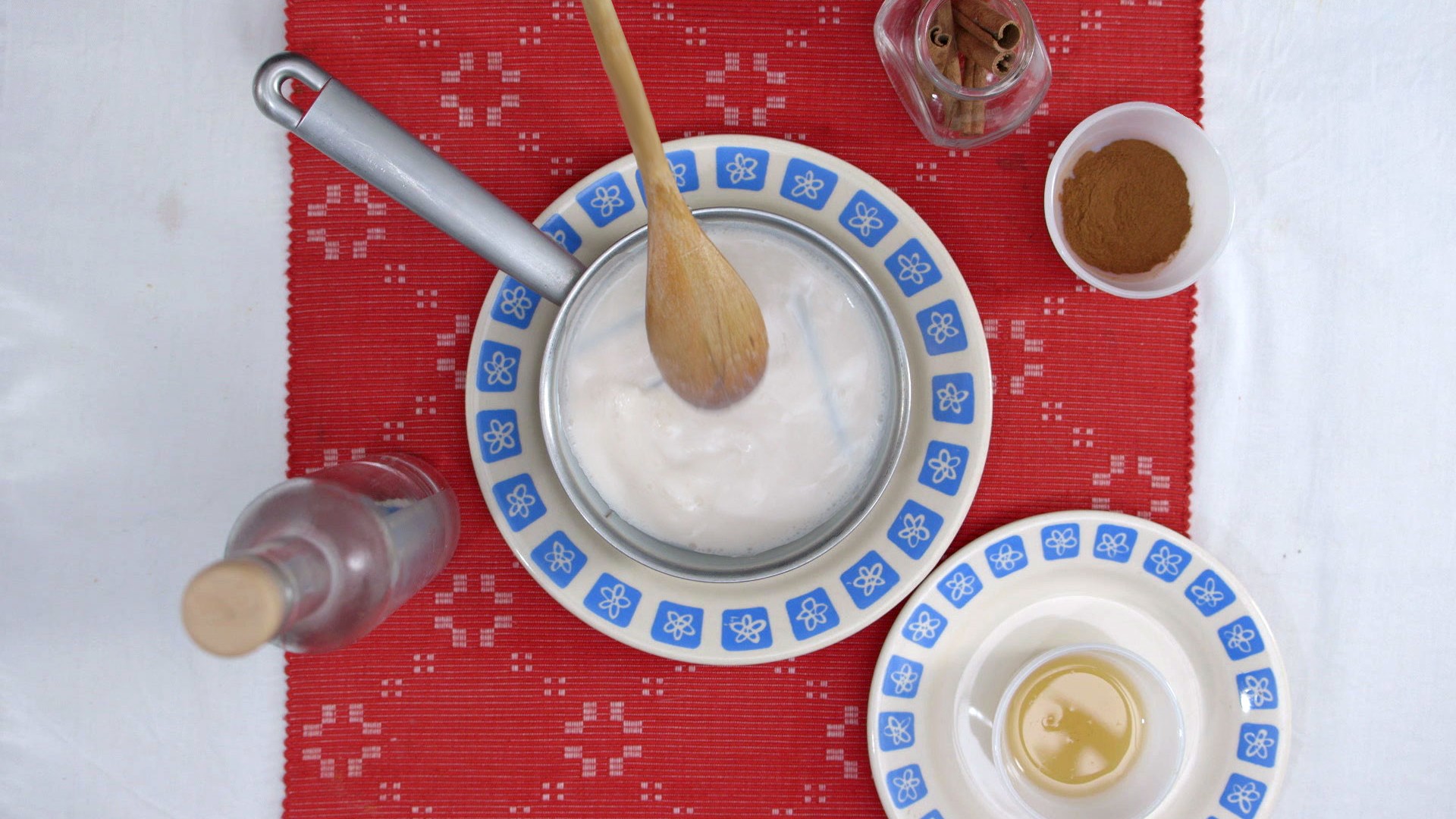apletfx/Getty Images; alex57111/Getty Images
In the second week of January, all 50 states reported widespread flu activity, except Hawaii—and they deserve some slack after that rogue missile threat fucked up their weekend. For all you mainlanders, though, chances are high you’ll come down with something this flu season. And when you do, odds are you'll reach for that trusty bottle of cough syrup to help you make it through the night. For lots of people, that's where things can get a little strange—reports of trippy, vivid dreams after taking cough syrup are common.There's still a lot we don't know about why this happens, but at least part of the explanation could be rooted in how these products work: Many common daytime and nighttime meds contain dextromethorphan (a cough suppressant) and some type of pain reliever (like acetaminophen). Daytime meds also have a drug called phenylephrine, which makes breathing easier by reducing swelling in your nasal passageways. But the ones you take before bed contain doxylamine succinate, an antihistamine. That’s the one that could give you vivid dreams and nightmares, says Alan Eiser, a psychologist at the Sleep Disorders Center at the University of Michigan.Like the name implies, antihistamines block histamine production in your brain. The neurotransmitter helps regulate things like appetite, body temp, itching, and inflammation—and also the sleep-wake cycle. Levels of histamine in your brain ebb and flow throughout the day: The chemical fires like crazy when you’re awake, more slowly when you’re tired or relaxed, and not at all when you’re sleeping. While doxylamine helps you fall asleep by suppressing histamine, it has nothing to do with your dreams.Doxylamine, it turns out, also blocks acetylcholine, a neurotransmitter that’s basically the boss of your dreams, says Subhajit Chakravorty, an assistant professor of psychiatry in the behavioral sleep medicine program at the University of Pennsylvania. Acetylcholine triggers rapid eye movement (REM) sleep. “REM sleep is your dream sleep,” Chakravorty says. “Anything that blocks acetylcholine, like doxylamine, will put off REM sleep.”On a normal night, you spend about 90 minutes sliding through four stages of non-REM sleep before you hit your first burst of REM, which lasts about 10 minutes. You repeat this cycle about five times each night, and your REM sleep stage gets longer in each subsequent cycle.
Watch More from Tonic:
But here’s what your night of sleep might look like after taking certain kinds of cough syrup: Instead of conking out and drifting into REM sleep after 90 minutes, your body may linger in the non-REM stages for several hours, Chakravorty says. Then, when the doxylamine starts to wane, your brain releases a bunch of acetylcholine.“The moment the doxylamine wears off, acetylcholine comes back with a vengeance,” he says. “All of a sudden, boom, your non-REM sleep gets taken over by REM sleep very quickly.” That causes REM rebound, an unusually long period of REM sleep that often happens as a result of sleep deprivation. Wacky dreams and nightmares in REM rebound might be a result of increased brain activity, your body’s way of frantically catching up on much-needed deep sleep.Considering we spend about one-third of our lives snoozing, scientists know surprisingly little about dreams, and especially the intersection of dreams and cold and flu meds. “What we do know is that REM sleep is mediated by acetylcholine and doxylamine blocks it,” Chakravorty says. (Alcohol can also lead to vivid dreams and nightmares, Eisen says, but the amount you get from a dose or two of medication is probably negligible.)Doxylamine isn’t just in NyQuil and other nighttime cold and flu meds. Since your body makes histamine during allergic reactions, you’ll find the drug in lots of allergy meds, too. But when it comes to nightmares, doxylamine is probably the least of your worries—you’re more likely to get them if you take antidepressants or have insomnia, depression, or anxiety, Chakravorty says.Read This Next: Will Smoking Weed Make My Flu Less Terrible?
Advertisement
Advertisement
Watch More from Tonic:

But here’s what your night of sleep might look like after taking certain kinds of cough syrup: Instead of conking out and drifting into REM sleep after 90 minutes, your body may linger in the non-REM stages for several hours, Chakravorty says. Then, when the doxylamine starts to wane, your brain releases a bunch of acetylcholine.“The moment the doxylamine wears off, acetylcholine comes back with a vengeance,” he says. “All of a sudden, boom, your non-REM sleep gets taken over by REM sleep very quickly.” That causes REM rebound, an unusually long period of REM sleep that often happens as a result of sleep deprivation. Wacky dreams and nightmares in REM rebound might be a result of increased brain activity, your body’s way of frantically catching up on much-needed deep sleep.Considering we spend about one-third of our lives snoozing, scientists know surprisingly little about dreams, and especially the intersection of dreams and cold and flu meds. “What we do know is that REM sleep is mediated by acetylcholine and doxylamine blocks it,” Chakravorty says. (Alcohol can also lead to vivid dreams and nightmares, Eisen says, but the amount you get from a dose or two of medication is probably negligible.)Doxylamine isn’t just in NyQuil and other nighttime cold and flu meds. Since your body makes histamine during allergic reactions, you’ll find the drug in lots of allergy meds, too. But when it comes to nightmares, doxylamine is probably the least of your worries—you’re more likely to get them if you take antidepressants or have insomnia, depression, or anxiety, Chakravorty says.Read This Next: Will Smoking Weed Make My Flu Less Terrible?